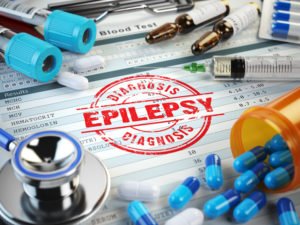When you go to the doctor and they prescribe medicine, you trust that you’re being given something that will help you. Unfortunately, too many medications can cause real harm to patients. Sometimes the side effects are immediate, and sometimes the damage doesn’t become obvious for years. Before you take any medication, ask your doctor about potential side effects. Check the FDA website periodically to make sure your current or past prescriptions aren’t causing known health problems. The truth is that your life just might be at stake. Here are three recent drug warnings from the FDA that you need to know about.
Oral Care Gels and Liquids
 Have you ever used a gel or liquid on your gum to make a toothache feel better? Do you use the infant version when your baby is teething? The FDA reports there are serious and even deadly side effects using these gels made with over-the-counter strength Benzocaine gel or liquid. It has been shown to reduce the oxygen in your blood, a life-threatening condition called methemoglobinemia.
The FDA recommends that Benzocaine not be used on children two or younger. Some brands that contain Benzocaine include Orabase, Topx, Orajel, and Baby Orajel. Anyone who uses these kinds of OTC drugs should check your specific brand to see if it contains this ingredient.
Have you ever used a gel or liquid on your gum to make a toothache feel better? Do you use the infant version when your baby is teething? The FDA reports there are serious and even deadly side effects using these gels made with over-the-counter strength Benzocaine gel or liquid. It has been shown to reduce the oxygen in your blood, a life-threatening condition called methemoglobinemia.
The FDA recommends that Benzocaine not be used on children two or younger. Some brands that contain Benzocaine include Orabase, Topx, Orajel, and Baby Orajel. Anyone who uses these kinds of OTC drugs should check your specific brand to see if it contains this ingredient.
Seizure and Mental Health Medication
 Lamotrigine, known commonly as Lamictal, is used to treat people for seizures and bipolar disorder. In some patients, it may severely and quickly activate your immune system and cause a problem known as hemophagocytic lymphohistiocytosis or HLH for short. This creates severe inflammation in the body and sends people to the hospital. Some patients who experienced this have died as a result. One persistent symptom is a temperature of 101 and higher. HLH can lead to serious problems with your liver, kidney, or lungs.
Patients who take Lamictal should talk to their doctor before stopping treatment. You could cause your seizures to come back or your mood disorder to flare up severely if you do. But have a conversation with your doctor as soon as you can.
Lamotrigine, known commonly as Lamictal, is used to treat people for seizures and bipolar disorder. In some patients, it may severely and quickly activate your immune system and cause a problem known as hemophagocytic lymphohistiocytosis or HLH for short. This creates severe inflammation in the body and sends people to the hospital. Some patients who experienced this have died as a result. One persistent symptom is a temperature of 101 and higher. HLH can lead to serious problems with your liver, kidney, or lungs.
Patients who take Lamictal should talk to their doctor before stopping treatment. You could cause your seizures to come back or your mood disorder to flare up severely if you do. But have a conversation with your doctor as soon as you can.
Heart Disease Patients and Biaxin
 Biaxin, also known as clarithromycin, is a fairly common antibiotic given to patients for a variety of infections. For many patients, it doesn’t seem to be a problem at all, beyond the known or typical side effects. For patients with heart disease, it’s another story completely. A recent long-term study found that patients with heart disease that took even just a two-week course of Biaxin increased their risk of serious heart illness and even death. They didn’t always get sick right away. In some cases, it was years later before problems occurred.
If you’ve been diagnosed at any point with heart disease, it’s important to talk to your doctor about what antibiotics you’ve been prescribed now or in the past. They also need to know to give you another option when you do need an antibiotic.
Biaxin, also known as clarithromycin, is a fairly common antibiotic given to patients for a variety of infections. For many patients, it doesn’t seem to be a problem at all, beyond the known or typical side effects. For patients with heart disease, it’s another story completely. A recent long-term study found that patients with heart disease that took even just a two-week course of Biaxin increased their risk of serious heart illness and even death. They didn’t always get sick right away. In some cases, it was years later before problems occurred.
If you’ve been diagnosed at any point with heart disease, it’s important to talk to your doctor about what antibiotics you’ve been prescribed now or in the past. They also need to know to give you another option when you do need an antibiotic.
What to Do If You’ve Used These Medications
If any of these medicines sound familiar to you, you might be concerned -- and you probably should be. You might also wonder what you need to do about it.- Talk to your doctor about any medication you’re currently taking. You may need to change prescriptions or have tests run.
- Contact an attorney to discuss your legal options about these dangerous drugs.
- Pay close attention to your health and make sure you get to the doctor or hospital if you experience any serious problems.